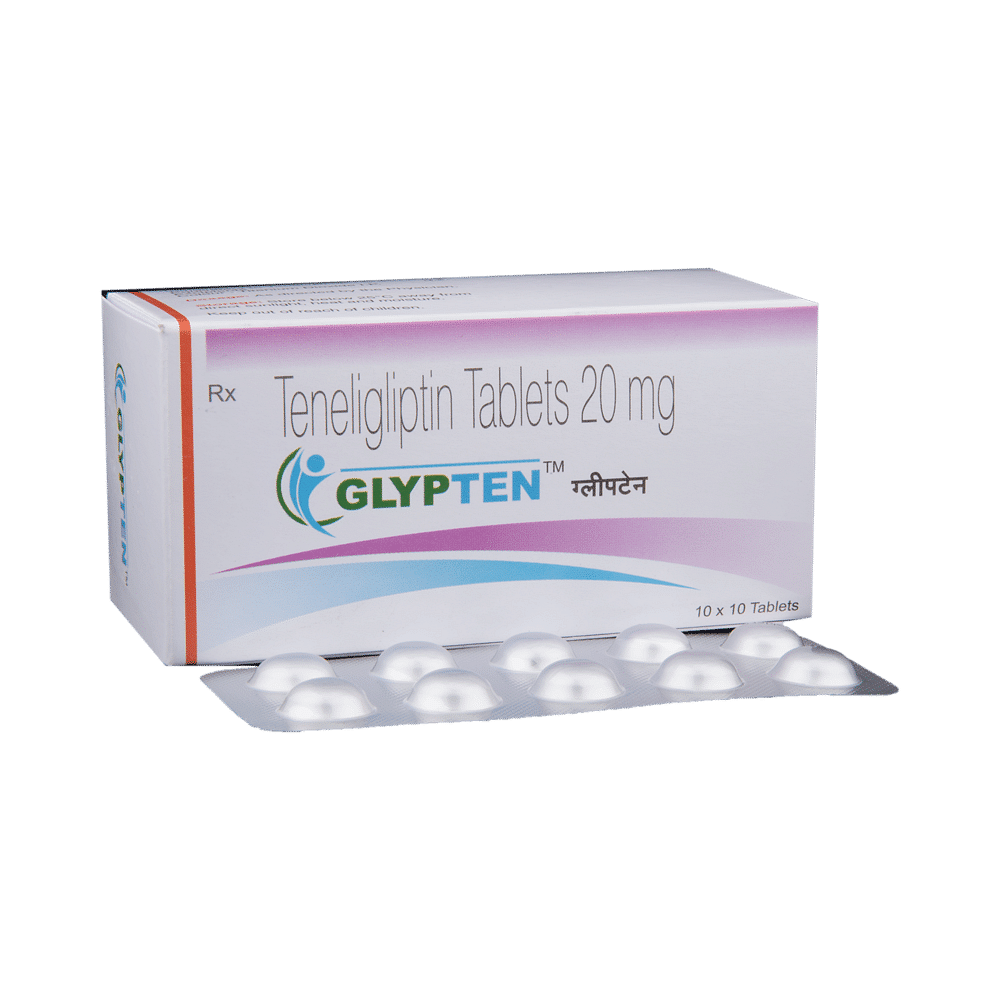
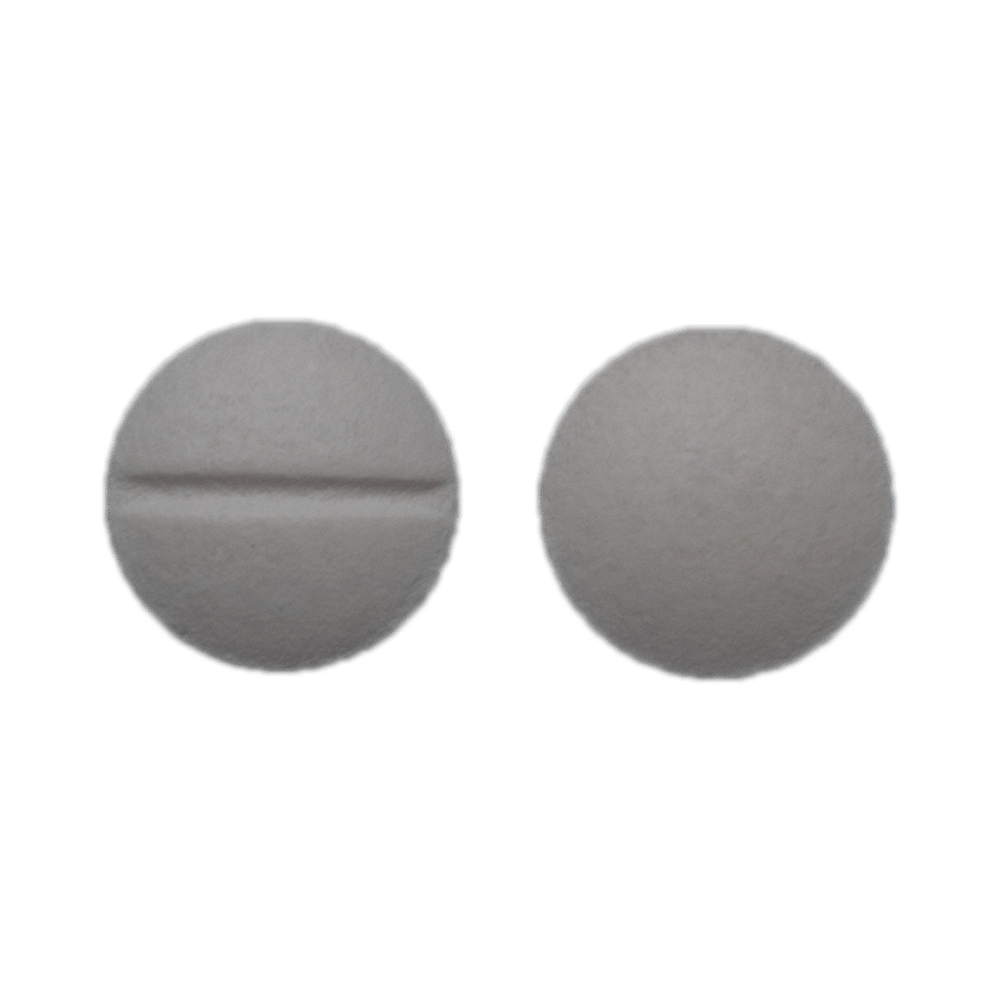
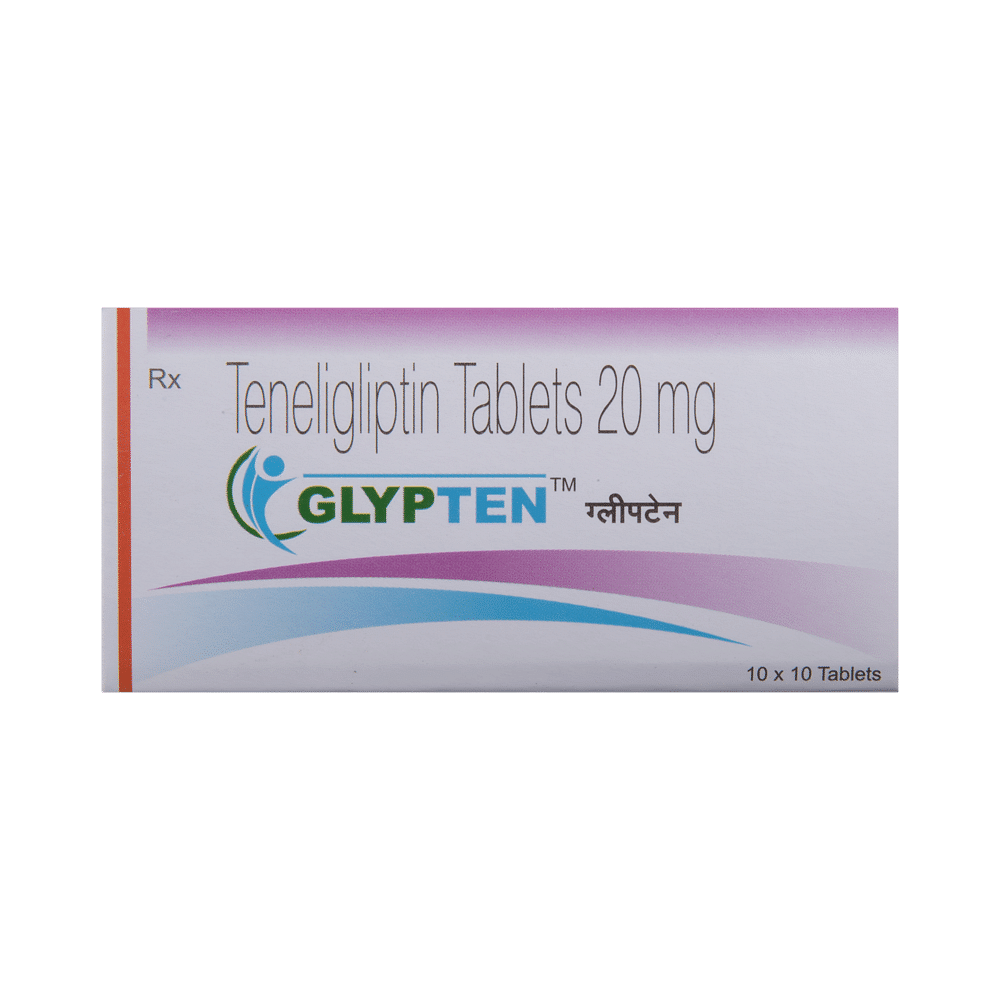
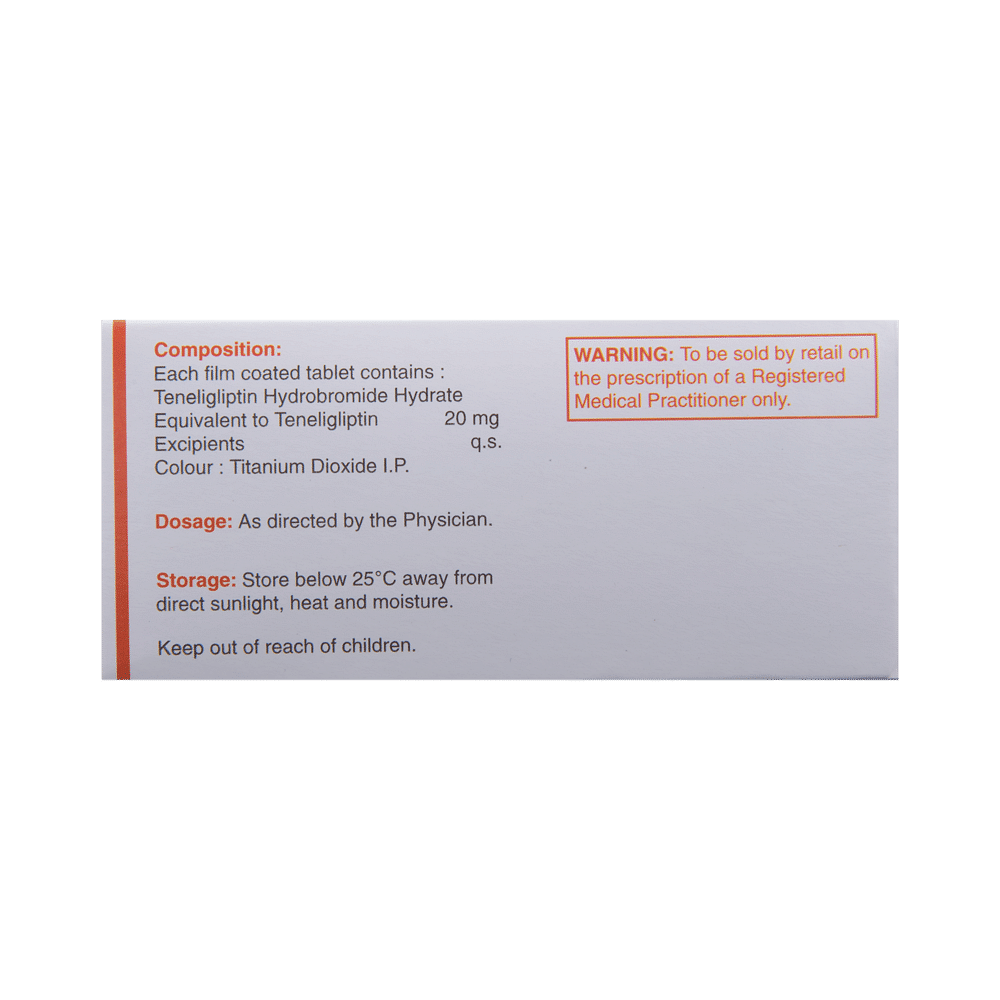
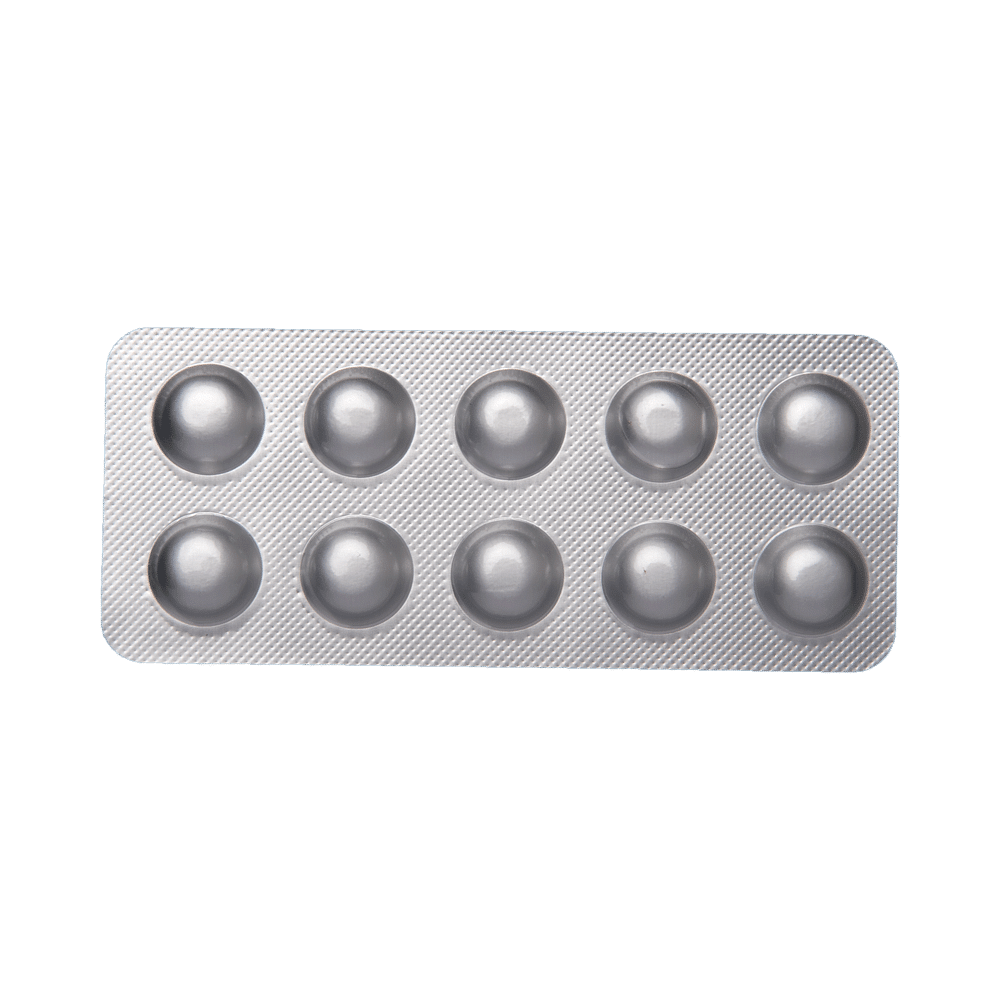
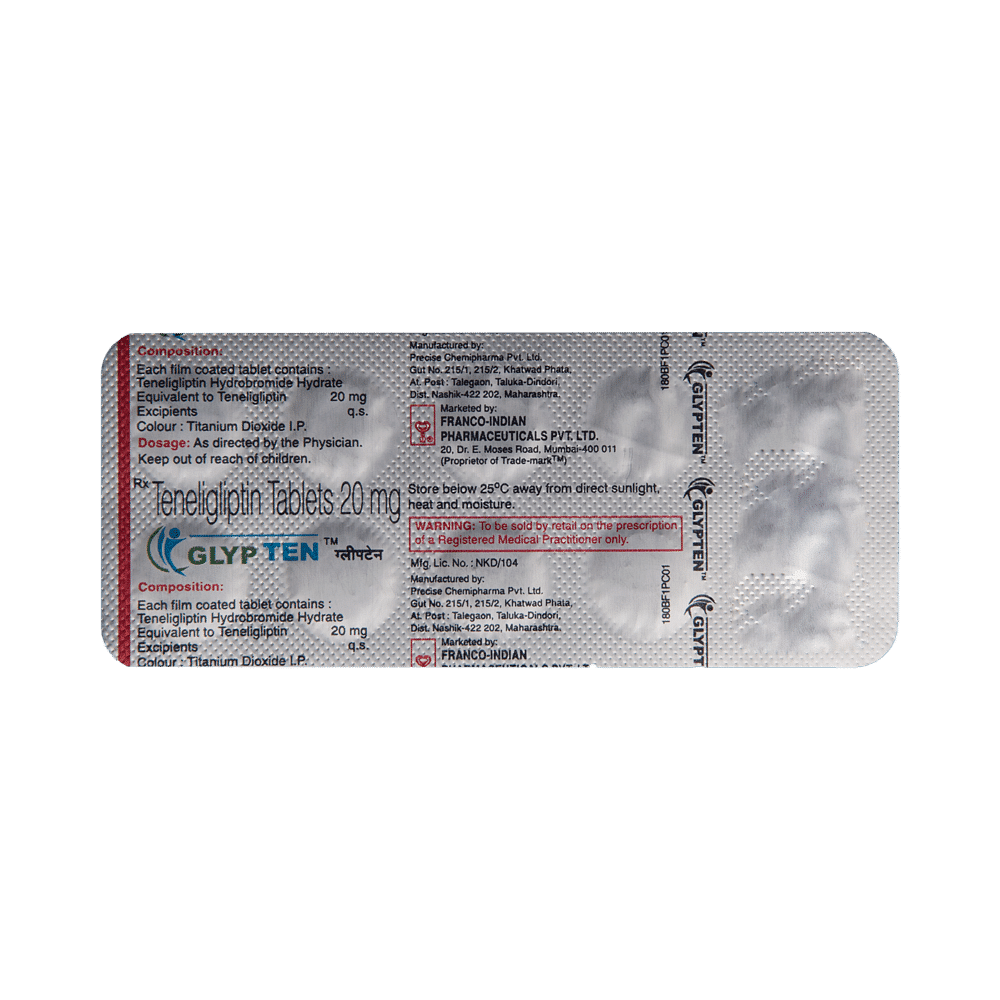
Glypten Tablet
Manufacturer
Franco-Indian Pharmaceuticals Pvt Ltd
Salt Composition
Teneligliptin (20mg)
Key Information
Short Description
Glypten Tablet is a medicine used to treat type 2 diabetes mellitus. It is used together with a healthy diet and regular exercise to control blood sugar levels.
Dosage Form
Tablet
Introduction
Glypten Tablet is normally prescribed when diet and exercise alone or other medicines do not prove sufficient to control your blood sugar level. Your doctor may prescribe it alone or in combination with other diabetes medicines. It can be taken with or without food. The dose will depend on your condition and blood sugar levels. Use it strictly as advised by your doctor.
Directions for Use
Take this medicine in the dose and duration as advised by your doctor. Swallow it as a whole. Do not chew, crush or break it. Glypten Tablet may be taken with or without food but it is better to take it at a fixed time.
Safety Information
Side Effects
No common side effects listed.
Alcohol Warning
It is unsafe to consume alcohol with Glypten Tablet.
Breastfeeding Warning
Glypten Tablet is probably unsafe to use during breastfeeding. Limited human data suggests that the drug may pass into the breastmilk and harm the baby.
Pregnancy Warning
Glypten Tablet may be unsafe to use during pregnancy. Although there are limited studies in humans, animal studies have shown harmful effects on the developing baby.
Interacting Medicines
Amiloride Beclometasone Betamethasone Chlorthalidone
How it works
Glypten Tablet is an antidiabetic medication. It works by increasing the release of insulin from the pancreas and decreasing the hormones that raise blood sugar levels. This reduces the fasting and postmeal sugar levels.
Quick Tips
Glypten Tablet should be taken at the same time every day since this helps you remember to take it. Be careful while driving or operating machinery until you know how Glypten Tablet affects you. It may cause hypoglycemia (low blood sugar level) when used with other antidiabetic medicines, alcohol or if you delay or miss a meal. Always carry some sugary food or fruit juice with you in case you experience hypoglycemia symptoms such as cold sweats, cool pale skin, tremor and anxiety. Inform your doctor if you notice joint pains or develop symptoms such as stomach pain, nausea and/or vomiting.
Related Medicines
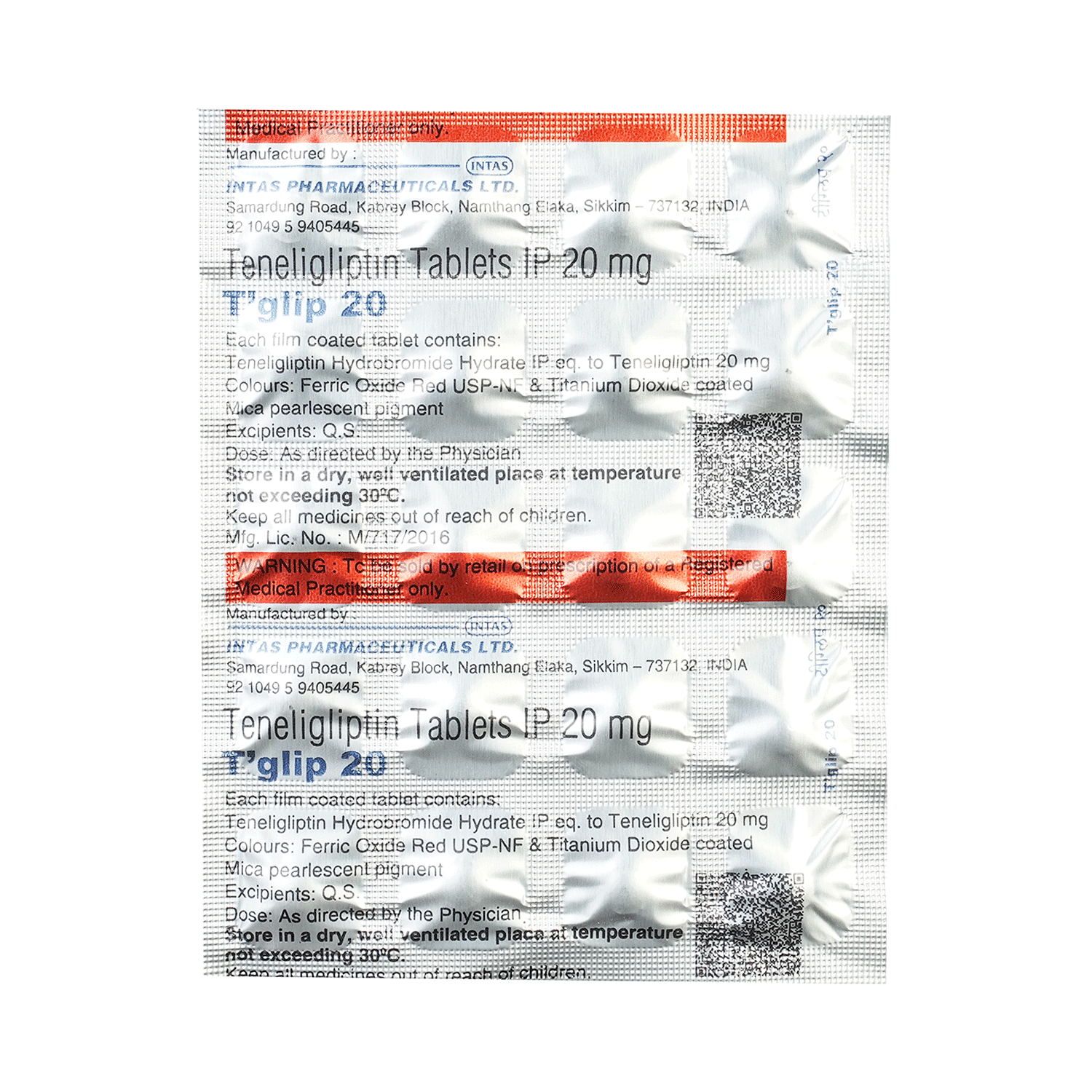
T Glip 20 Tablet
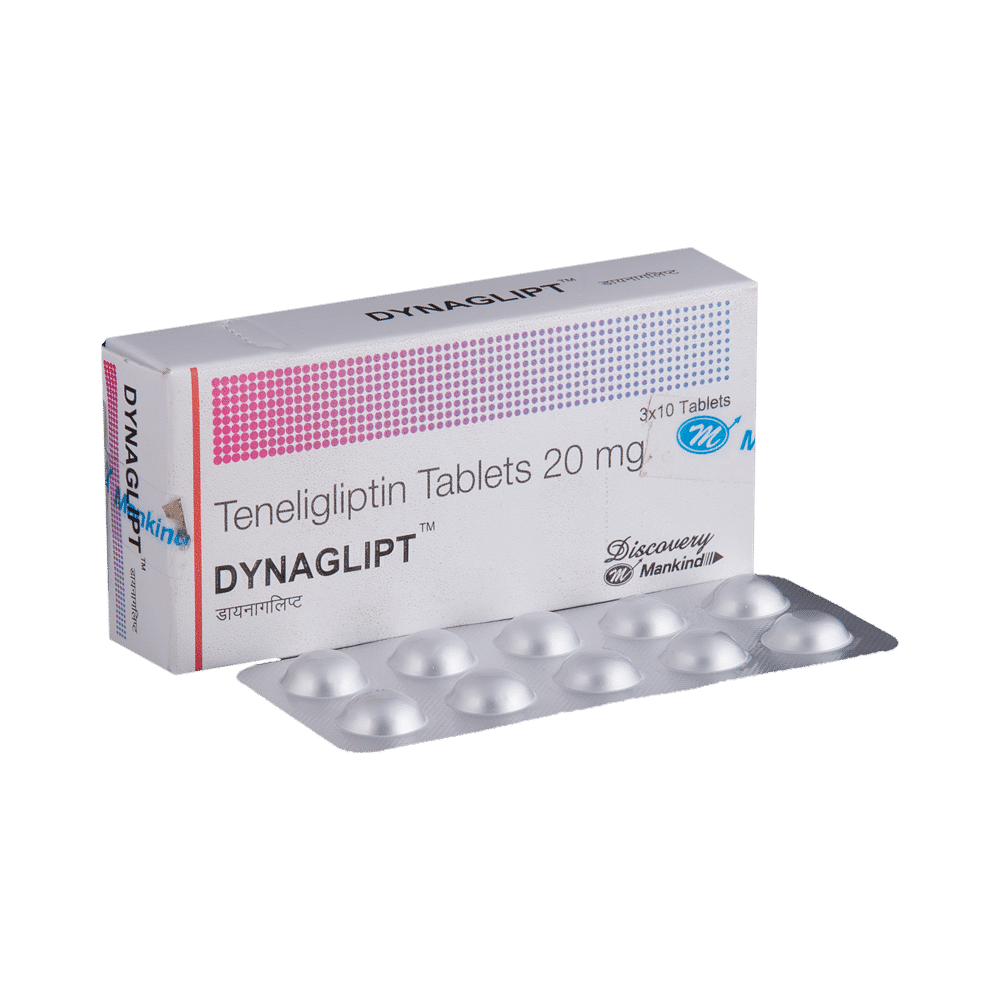
Dynaglipt Tablet
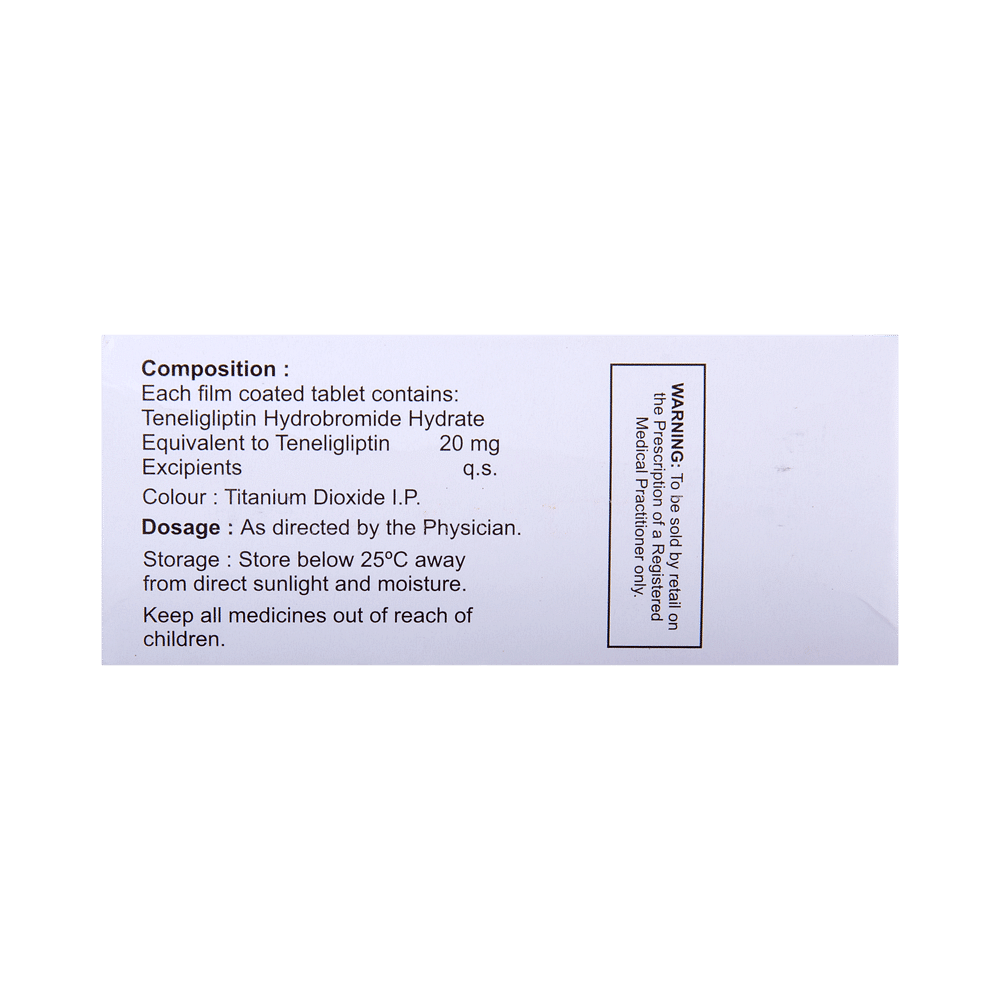
Tenlimac Tablet
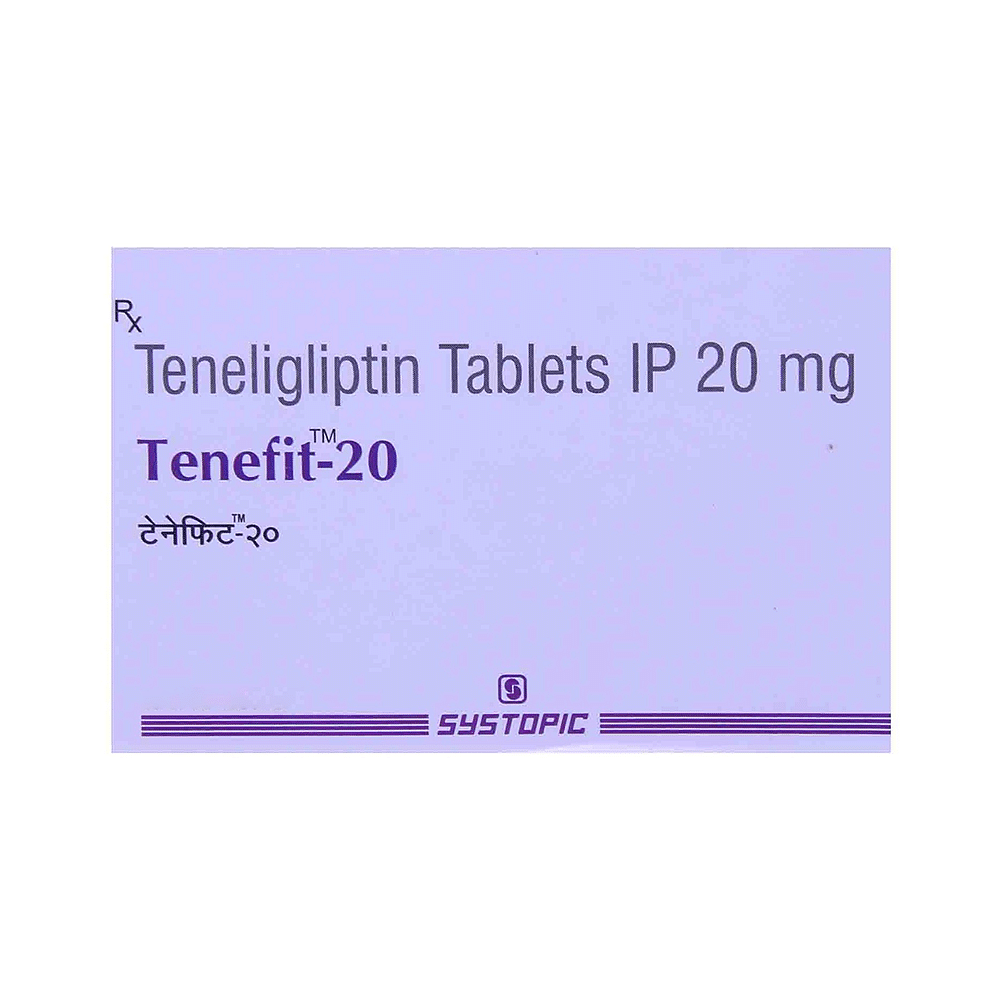
Tenefit-20 Tablet
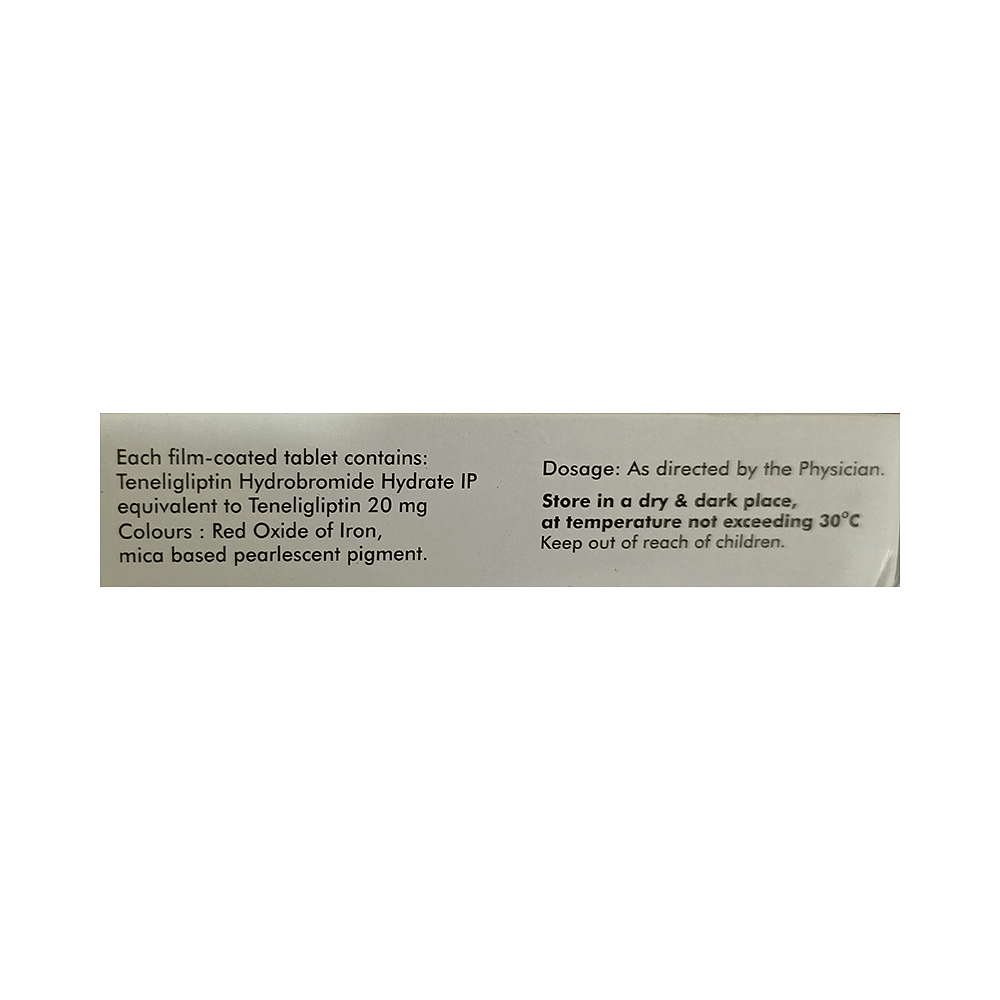
Tenepride 20 Tablet
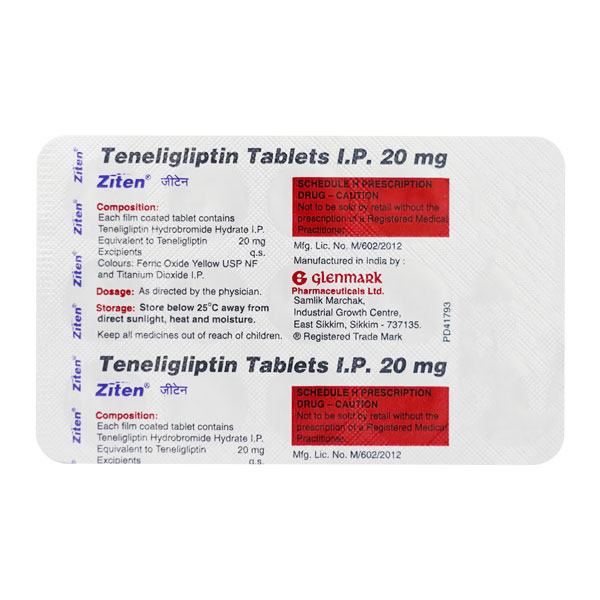
Ziten 20 Tablet

Teneblu Tablet
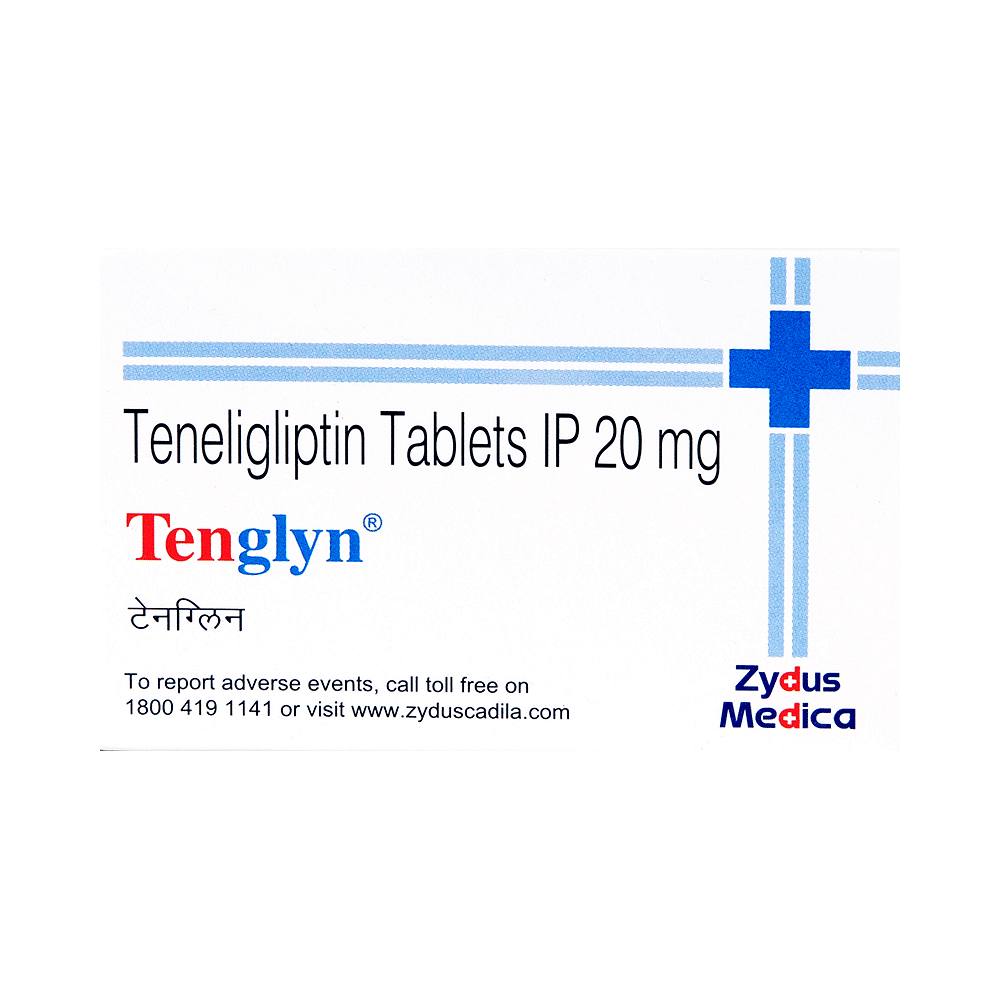
Tenglyn Tablet
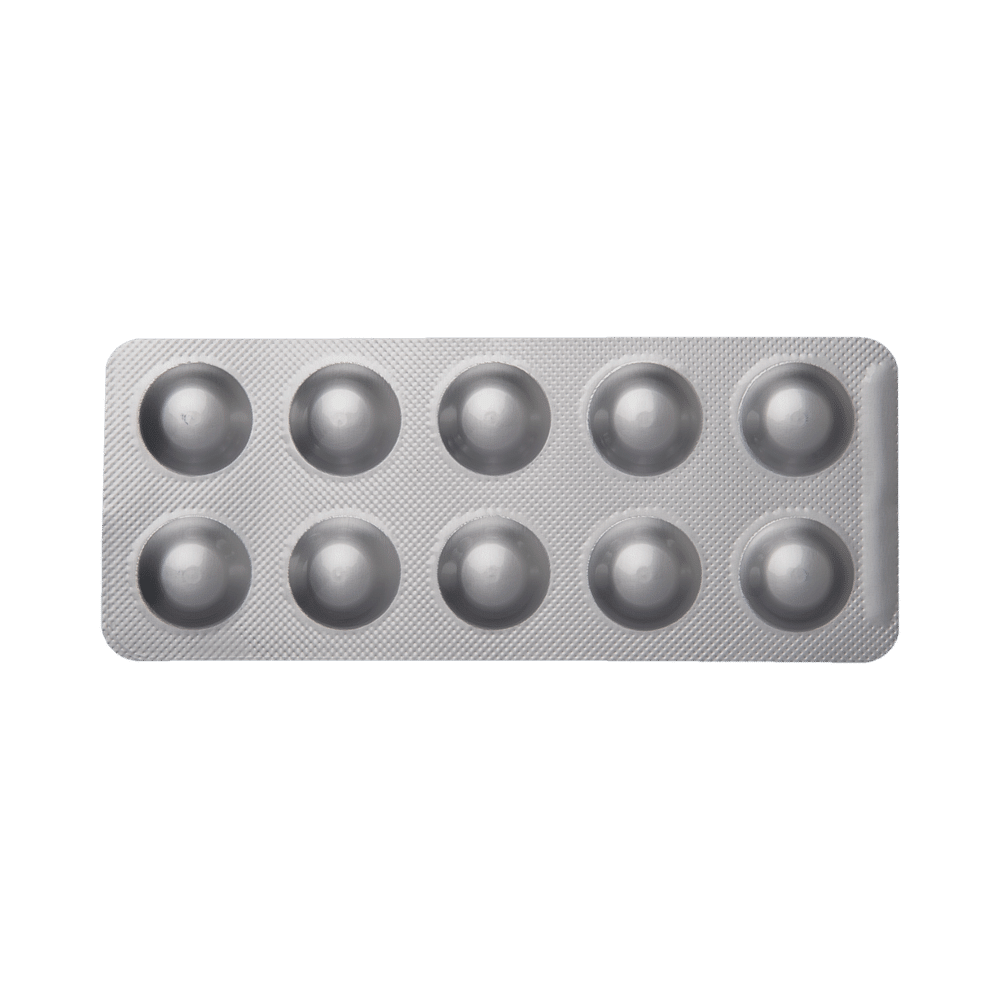
Eternex-T Tablet

Megagliptin Tablet


